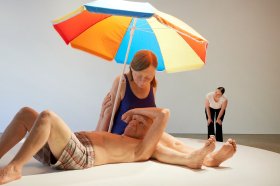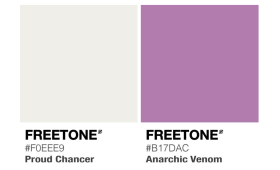Photo by Marco Xu on Unsplash.
In the recent Federal Budget, the Australian Taxation Office was allocated over $450 million to be spent over the next four years to target the black economy (the part of a country’s economic activity which is unrecorded and untaxed) and to improve the integrity of the tax system.
For artists and creative professionals it is more important than ever that tax claims are made only when justified and that they are able to be substantiated. It is a fine line and one that we are confident in meeting for you.
With the above in mind, what are the types of tax claims artists and creative professionals can make?
In no particular order this is my list of the Top 10 artist tax claims:
1. Car expenses
There are three methods of claiming car expenses: cents per km, logbook and commercial vehicle. The last two methods may provide a higher claim than the cents per km method. The logbook method requires a diary of car travel over three months. The commercial vehicle method is applicable for utilities and vans but some larger SUVs may qualify. Make sure you keep your larger receipts – registration, insurance, repairs – for the logbook and commercial vehicle methods.
2. Website costs and downloads
Does the ATO allow you to write off website advertising expenses in full? No, they are actually capital expenses and should be claimed over a number of years. (Except if a new claim is being made for the $20,000 write-off measure – refer to 1). Downloads not associated with creating your website can be claimed in full – as long as there is a connection to your arts practice. Spotify and iTunes are generally deductible for musicians, for example. As the cost of these downloads is typically small, you do not need to keep the emailed receipt. (Although you should save it somewhere just in case). Proof of purchase will be on your credit card statement, which will also provide an additional small claim for the foreign exchange fee.
3. Travel and entertainment costs
Payment now for a business trip in the near future should be deductible if you claim on a cash basis. The dominant purpose of the trip has to relate to your arts practice. If you are visiting relatives in London for one month and during that trip you spend a day at the Tate, it may be difficult to substantiate that claim. Restaurant meals can be claimed as a travel cost but not as a business expense in the city where you live. Takeaway coffees and meals are a grey area that are more appropriate for specific purpose activities like recording or film production, but it is possible to claim these costs as staff amenities for creative professionals working from their studios.
4. Presentation costs
If you perform on stage or in front of a camera, it may be possible to claim wardrobe expenses, dry cleaning, hair styling and dental costs – but bear in mind there will be a private element to these expenses that cannot be deducted. Proportionality of the cost to your income is important to claims of this nature.
5. Donations
Artists are always being asked to donate artworks for charity but this does not always make these gifts tax-deductible. You will be on safe ground if the donation is made through the Cultural Gifts Program, which will also allow you the option to allocate the gift over a period of five years. Otherwise, if in doubt please ask either me or ATO for guidance.
6. Home office
Another vexed area for claims. Make sure the home office is actually an office – not part of your bedroom. Ideally it should be a room with a door that closes and used for business. Generally, the claim relates to the proportion of rent or interest costs the office occupies in relation to the entire residence. If in doubt draw a floor plan and work it out precisely. For more information view my article here.
7. Research
An interesting claim because by definition research adds to your human capital of knowledge and capital is an asset. As a student, you may accumulate a library of material for which no deduction is made. Post-study, as a creative professional you draw on that material and it may then be appropriate to write down the cost of your library over a number of years. Library additions can be expensed as they replenish your materials. Seeing a film, going to a show, attending talks can also be claimed – but only to the extent there is a connection to your practice.
8. Repairs and maintenance
This is a wide category. Everything from replacing a light bulb to retouching paint in your studio. The limit of the claim is reached when the repair becomes an improvement. Typically, improvements are connected to land and buildings – renovations for example – and the ATO treats these types of claims as assets that have to be written off over time.
9. Professional fees
Accountancy, legal fees and agent commission. Legal fees can be a grey area – a will for example is generally a private cost but what if your testament includes provision for payment of your royalties post-death? Agent commission is a hidden cost that can be easily missed. Artists, actors and musicians tend to declare the net income they bank but there is a requirement to declare the commission as an expense by grossing up the sale income. From an accountancy point of view the commission can then be seen rather than hidden. Commissions may also have GST implications, particularly as many artists are not registered for GST but the commission they are charged do contain GST.
10. Depreciation
Not well understood, however each year the ATO produces a schedule of assets that may be depreciated. The schedule provides a useful life in years that you may write off an asset. Artworks have the longest useful life at 100 years – which is not very useful for artists because it is unlikely the purchaser of an artwork will also live 100 years after buying a painting. Fortunately, there are ‘pooling’ rules which means a small business (currently those with an annual turnover of up to $2 million) may write-off up to $20,000 ex-GST for each item of plant and equipment bought for their business. Artworks do qualify. But make sure if you seek this claim you hang it in your home office (refer to 5 above) where clients visit you. This special measure will run until 30 June 2019 and is available for businesses with an annual turnover of up to $10 million.
This article was first published on foxmichael.com.au.






